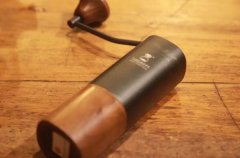What is the treatment of red wine? What's the difference between taste and honey treatment?

For information, please follow the coffee workshop (Wechat official account cafe_style)
2015 WBC contestant Sasa brought to the world a Colombian coffee bean that has gone through a similar wine-making process. In addition to the novel taste of beans, the "red wine treatment" that was adopted to treat beans also made editors as curious as many coffee lovers. What on earth is the so-called "red wine treatment"? I believe we all know the traditional coffee treatment methods such as washing, tanning and honey treatment, but what is the red wine treatment of coffee beans?
The red wine treatment of coffee beans, also known as red wine treatment, is inspired by the brewing technology of red wine. At present, only eight estates in Colombia have successfully introduced coffee beans treated with this method to the market. According to the data of these eight estates, we can roughly divide the types of red wine treatment into: acetic acid fermentation (Aerobic aerobic fermentation), lactic acid fermentation (Anaerobuic anaerobic fermentation), mixed fermentation (Mix Fermentation=Aerobic+Anaerobuic).
The traditional treatment method is difficult to control the changeable fermentation degree of coffee beans. But red wine treatment rules can ensure the quality of coffee beans by controlling PH value, even temperature and humidity, and airtight fermentation makes aroma less volatile.
The red wine treatment of coffee beans, also known as red wine treatment, is inspired by the brewing technology of red wine. At present, only eight estates in Colombia have successfully introduced coffee beans treated with this method to the market. According to the data of these eight estates, we can roughly divide the types of red wine treatment into: acetic acid fermentation (Aerobic aerobic fermentation), lactic acid fermentation (Anaerobuic anaerobic fermentation), mixed fermentation (Mix Fermentation=Aerobic+Anaerobuic).
The traditional treatment method is difficult to control the changeable fermentation degree of coffee beans. But red wine treatment rules can ensure the quality of coffee beans by controlling PH value, even temperature and humidity, and airtight fermentation makes aroma less volatile.
Next, let's talk about the specific process of fermentation. First of all, Colombian farmers carefully pick coffee cherries and carefully select coffee red fruits to ensure that among the coffee cherries selected for processing, the percentage of immature cherries is less than 2%, defective beans less than 3%, and floating beans less than 5%.
The selected coffee cherries are placed in a specific container by the farmer's uncle (the beans used in the Australian barista Sasa competition are placed in a metal container). But in any case, the container should have a device similar to a red wine fermentation suppository or a single exhaust valve. In this way, carbon dioxide can be spilled through the device to control the concentration of air in the container. At this time, the coffee cherries in the container are fermented with acetic acid, and the beans are relatively bright, clean and citric acid.
According to Sasa's description in the competition, the processor injected carbon dioxide into the container to prevent oxidation from producing volatile acid, a process known as lactic acid fermentation, which produces malic acid and stone acid, which is relatively stable, so the beans fermented with lactic acid have a more mellow acidity, with cheese, nutty and creamy flavor.
Important Notice :
前街咖啡 FrontStreet Coffee has moved to new addredd:
FrontStreet Coffee Address: 315,Donghua East Road,GuangZhou
Tel:020 38364473
- Prev

Coffee beans red wine treatment is to use red wine to deal with coffee beans?
Professional coffee knowledge exchange more coffee bean information please follow the coffee workshop (Wechat official account cafe_style) 2015 WBC contestant Sasa brought the world a similar red wine brewing process of Colombian coffee beans, in addition to the novel taste of beans, was used to deal with beans of the "red wine treatment" also let the editor and many coffee lovers, good
- Next

Chestnut hand mill can also make espresso? How to use a hand mill to make an espresso?
It is said that some hand grinders can also be ground very fine and can be used to make espresso. Coincidentally, colleagues have a hand mill that is said to be Italian-style. Today, let's try to use the hand-ground powder to make espresso. First of all, let's introduce today's bean grinder Timo's chestnut G1S. This is a bean grinder with a cone knife head, a cone knife grinding machine.
Related
- What is the meaning of lactic acid fermentation with coffee bean treatment?
- How to judge the state of foam by sound?
- How does the latte pull out the unicorn pattern? Come to get for a little trick to improve the flower pull!
- Will flower pulling affect the taste of the latte?
- Do you know the history of coffee?
- The difference between honey treatment and sun washing what is raisin honey treatment?
- What kind of milk can a novice use to make coffee foam to keep the foam longer? The correct method and skills of milking tutorial sharing
- Why do washed coffee beans taste sour? Flavor characteristics of washed Coffee
- Introduction to the skill of how to practice the size and height of water injection around the circle of hand-brewed coffee
- How do beginners practice coffee flower drawing from scratch?

